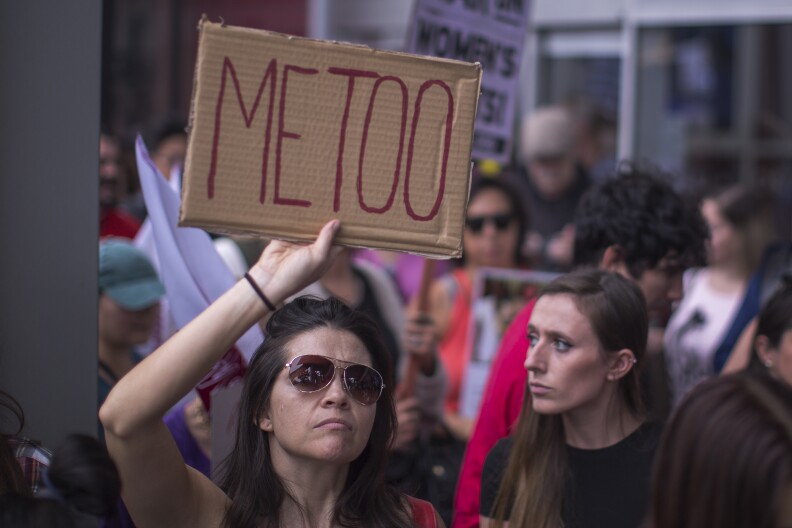With so many allegations of sexual misconduct coming to the forefront, a lot of beloved personalities are falling from grace. For many fans, it can be difficult to accept that someone they admired has behaved so poorly. But others go a step further, defending the accused.
That may be due to a psychological phenomenon called "in-group bias." Take Two's Josie Huang spoke with Jerry Jellison. He specializes in social psychology and how people resist change.
Interview Highlights
What is in-group bias?
We tend to put ourselves into groups. People that we align with, people that we feel we are similar to. It can be your family, the school you attended, the company that you work for, especially in contrast to the company that you compete against, your religion versus another religion.
In general, the groups that we identify with, we like those people, we try to support them, and we defend them. Whereas ‘out groups,’ we tend to dislike them, we don’t support them, and in some cases, we attack them.
How in-group bias affects how we process allegations of sexual misconduct?
We’re in multiple groups, so let’s say that I can be a Republican in Alabama, I can be a mother, and then I could have been a victim of harassment, or a predator in the past. The sum total of those, I would feel that part of me is in group with the candidate and part of me is different. So, you have to calculate that as how much weight do you give to each one of those factors?
How does in-group bias work internally?
It’s pretty much a snap judgment, and we come along and rationalize it later. We respond to something because it’s in our interests or it’s not in our interests, and then we come up with a rationalization to support whatever position we have taken.
What’s the opposite of in-group bias?
It’s called out-group bias. There, you dislike the person. You tend to seek out information that defames the person or derogates them in some way, and you avoid information that is supporting them.
How can you resist falling into in-group bias?
It is difficult to do, especially if you have a strong affiliation with the person. The main thing to do is just give yourself time and say, 'Let me just slow down, let me look at both sides of this.' Let me seek out information in unbiased ways to try and make yourself an unbiased observer initially.
And then, better yet, is to actually spend time talking with, or being around people who are in a group that you consider an out group.



